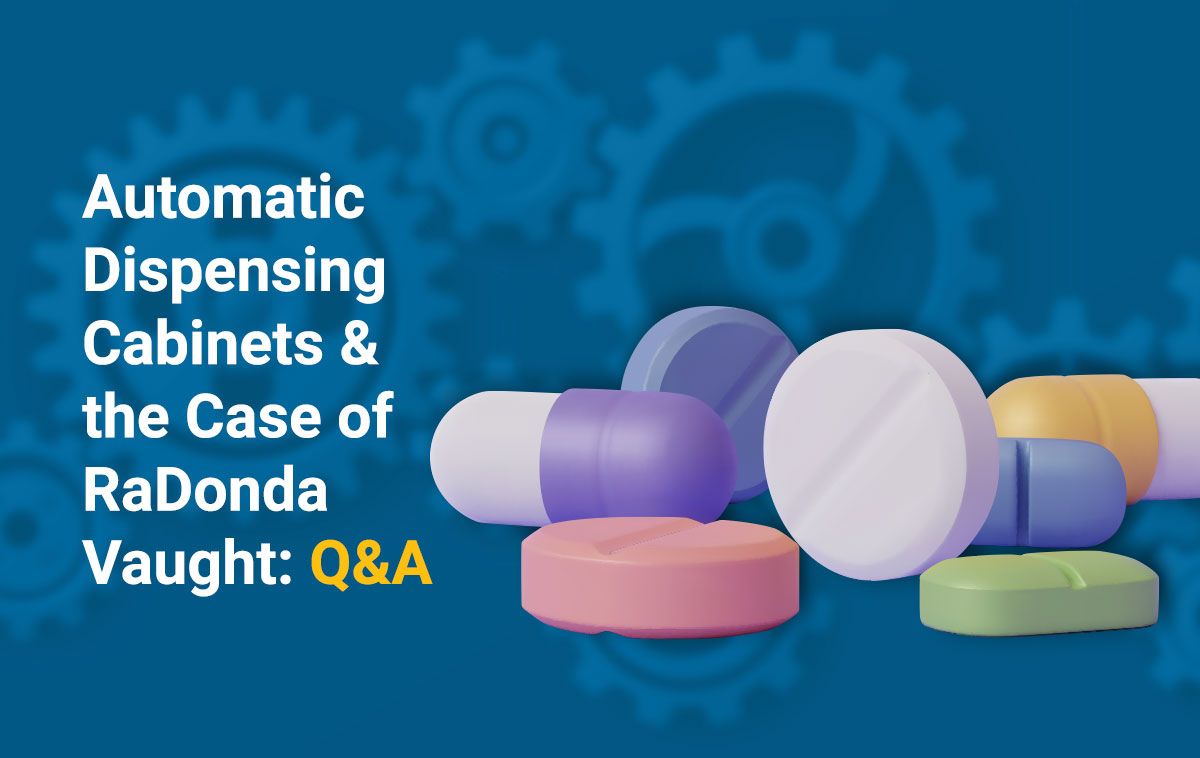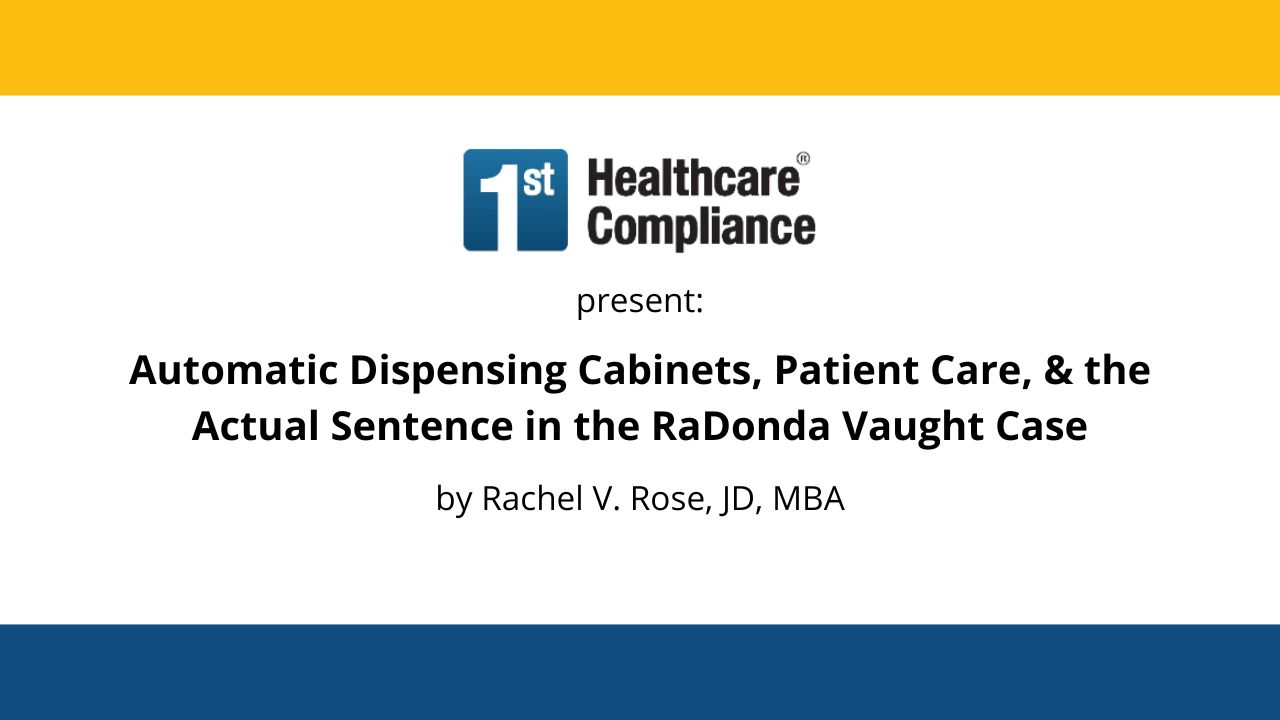
Automatic Dispensing Cabinets & the Case of RaDonda Vaught: Q&A
Rachel V. Rose, JD, MBA, principal with Rachel V. Rose – Attorney at Law, P.L.L.C., Houston, TX, answers some common questions and provides explanations related to the education surrounding Automatic Dispensing Cabinets, Patient Care, and the Case of Nurse RaDonda Vaught.

Automatic Dispensing Cabinets, Patient Care, & the Actual Sentence in the RaDonda Vaught Case
Rachel V. Rose, JD, MBA, principal with Rachel V. Rose – Attorney at Law, P.L.L.C., Houston, TX presents this very timely and fascinating subject for us. A former nurse was charged, criminally prosecuted, and in March 2022, convicted of gross neglect of an impaired adult and negligent homicide for a 2017 fatal drug error. This webinar approaches the facts and circumstances, which led to the fatal error, the role that Automatic Dispensing Cabinets (ADCs) played in the process in order to prevent similar situations. The purpose is to inform participants of a myriad of items so that facilities can evaluate and implement appropriate safeguards, train nurses and other staff, and take corrective actions before an adverse patient outcome occurs. What happened here is preventable and nurses should not flee the profession, especially because of the compassion shown by the judge.
